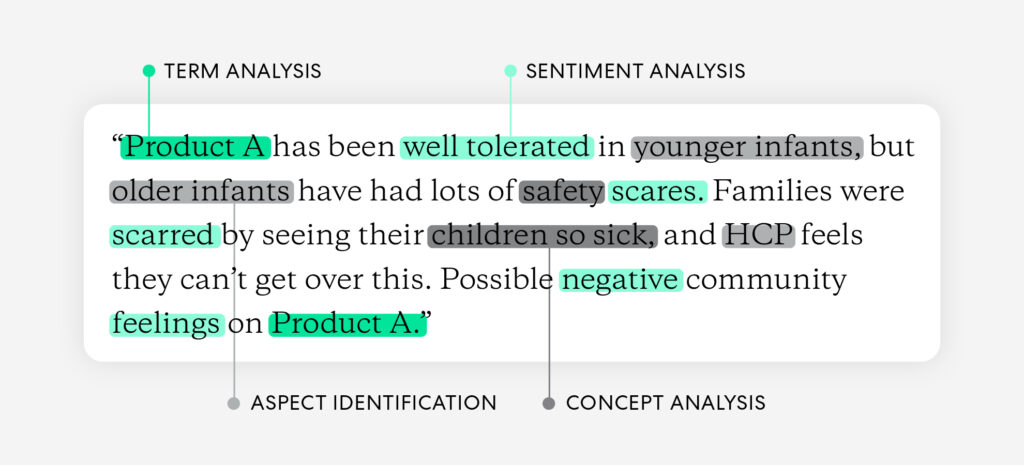The pharmaceutical industry faces complex challenges, including workforce changes, a tough economic climate, and supply chain disruptions. Amid these forces, the industry is also under unprecedented pressure to innovate new and existing drugs. What technologies, tools, and approaches are companies exploring to amp up innovation and bring more innovative drugs to market? Let’s explore the four latest trends in pharmaceutical innovation.
What are the latest trends in pharmaceutical innovation?
Pharmaceutical organizations have always relied on medical innovation – life-saving drugs and treatments are developed and brought to market through an intense focus on research and the pursuit of science. This traditionally conservative industry is increasingly embracing technology to evolve traditional processes. Many trends hold in big vs small pharmaceutical companies as teams compete to develop the next new drug. Let’s explore some trends impacting medical innovation in the pharmaceutical industry.
Artificial intelligence
Many AI applications in life science are relatively new, but organizations already use them to improve process efficiency, accuracy, patient safety, and patient outcomes. The following are examples of AI applications in the industry:
- Drug development. Some AI systems can help the pharmaceutical sector parse and analyze enormous data sets with far greater speed, accuracy, and efficiency than even the most highly-trained humans, making them powerful tools for enhancing the drug development process. AI systems are already widely used to help identify and generate new drug candidates, repurpose existing drugs, and validate potential drug candidates. There’s also an opportunity for a pharma company to use AI and machine learning to crunch manufacturing process data and to make these processes more efficient – minimizing expense and reducing time to market.
- Clinical trials. The current clinical trial process is time-consuming, expensive, and subject to problems in the drug development regulatory process and patient enrollment process. But AI is already helping to make clinical trials more efficient, bring new treatments to market more quickly, and maintain patient safety. AI may improve trial recruitment by identifying populations that stand the best chance of responding to treatment, and AI is already being used to replace placebo control groups with ‘digital twins’ of subjects for randomized clinical trials, allowing clinical teams to reduce the size of their control groups and minimize patient disruption.
- Diagnosis and disease identification. AI applications can help humans identify big data sets’ patterns, anomalies, and correlations. This ability is beneficial for accurate diagnosis and disease identification. In the near future, AI is expected to minimize human error in disease identification and make more accurate diagnoses faster and earlier than human HCPs – leading to significantly improved patient outcomes.
Precision medicine
An increasing focus on understanding treatment pathways for a specific patient group has ushered in a new requirement: accessing and analyzing information about various aspects of patients’ lives – aspects that go beyond the structured data found in electronic medical records. As life science organizations turn to the valuable information in the unstructured text found in doctors’ notes, referral forms, medical charts, and other essential documents in clinical trials, they will need technology to assist them.
Blockchain
In the pharmaceutical industry, blockchain technology may help businesses increase efficiency and streamline operations without compromising security and, by extension, compliance. Blockchain can also enhance the effects of research and development, particularly in helping to ensure that clinical trial protocols are strictly maintained and followed. The technology may also assure trial patients and participants who can be secure that their personal medical information is protected and safe from hackers.
Drug manufacturers can use blockchain to protect their innovations and reputations against counterfeit drug distribution. According to research in the National Library of Medicine, “Blockchains can be used to trace the origin of pharmaceuticals, the transport of drugs, and the procurement of raw materials. Blockchain technology also reduces the number of intermediaries involved in the pharmaceutical process, thereby reducing costs and improving safety.”
Advances in digital and analytics tools
According to McKinsey:
“Digital tools, robots, and sensors are becoming cheaper and easier to access, and they can be used to capture all manner of raw data. In addition, edge computing and cloud analytics are providing real-time optimization and transparency.”
While big pharma organizations are working to take advantage of the power of data to increase their agility, no company has emerged as a global leader in this space, likely due to internal silos and still-nascent efforts to centralize data science and analytics operations.
As pharma teams become more au fait with good data management practices, business strategies will coalesce around the idea that the intake, interpretation, and analysis of data should be a single end-to-end process. Hallmarks of this sea change could include establishing an internal data science function or prioritizing insights management strategy.
What are potential obstacles pharma companies will face?
As previously discussed, pharmaceutical companies tend to be more conservative regarding large-scale transformation. While the industry still relies on merger and acquisition activity and restructuring to gain new market opportunities and reveal efficiencies, how will companies incorporate modern technology into their operations?
To integrate new practices and tools effectively, pharmaceutical companies must become proficient at change management. Without a strategic approach to managing change, organizations will find it challenging to introduce new approaches and achieve success.
How will pharma companies be able to overcome those challenges?
Leaders in health care must be able to identify change leaders within their teams. These people may be technologically savvy, very organized, or simply good motivators. These change leaders must ensure teams are aligned, have proper training, and understand the impact of any proposed changes. They’ll need to solicit feedback, view change as an iterative process, and establish a way to measure the value of changes they implement.
To learn more about how life science and health care teams use technology like an insights management platform to transform their operations and product life cycle management in pharma, download our free guide.






